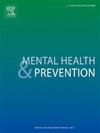Protocol for Fit4Study: A non-randomised controlled trial of a physical activity intervention for university students’ mental health and wellbeing
IF 2.4
Q2 Medicine
引用次数: 0
Abstract
Purpose of Research
University students experience higher rates of mental ill health compared to other age groups, with physical activity emerging as a potential preventative strategy. However, few physical activity interventions for university students are designed using behaviour change theories, limiting their potential effectiveness. The purpose of this paper is to outline the protocol for a non-randomised controlled trial evaluating Fit4Study, a physical activity intervention aimed at improving mental health outcomes in undergraduate students, informed by the Capability, Opportunity and Motivation model of behaviour change (COM-B).
Procedure
A 2 × 2 (condition: Fit4Study, Control Group; time: pre, post) repeated measures ANOVA will be used to analyse the effectiveness of Fit4Study in improving mental health outcomes compared to a no-intervention control group across two time points. Primary outcomes include symptoms of anxiety and depression, psychological wellbeing, loneliness, and use and knowledge of physical activity to support mental health and wellbeing. Secondary outcomes include physical activity and sedentary behaviour. Feasibility will be assessed quantitatively via reach and retention and qualitative data will be collected to analyse participants’ acceptability of the content and delivery of Fit4Study.
Main Results
No main results are reported as it is a protocol paper.
New Findings
If the results are significant, Fit4Study has the potential to serve as an easily replicable physical activity intervention aimed at improving university students’ mental health and wellbeing. It will also be among the first mental health-focused physical activity interventions to incorporate behaviour change theories in the design and implementation phases.
fit4研究方案:一项针对大学生心理健康和幸福的体育活动干预的非随机对照试验
研究目的与其他年龄组相比,大学生的心理健康状况不佳的比例更高,而体育活动正成为一种潜在的预防策略。然而,很少有针对大学生的体育活动干预是根据行为改变理论设计的,这限制了它们的潜在有效性。本文的目的是概述一项评估Fit4Study的非随机对照试验的方案,Fit4Study是一项旨在改善大学生心理健康结果的体育活动干预,由行为改变的能力、机会和动机模型(COM-B)提供信息。2 × 2(条件:fit4)研究,对照组;时间:前后)重复测量方差分析将用于分析Fit4Study在两个时间点上与无干预对照组相比在改善心理健康结果方面的有效性。主要结局包括焦虑和抑郁症状、心理健康、孤独感,以及利用和了解身体活动来支持心理健康和福祉。次要结果包括身体活动和久坐行为。可行性将通过覆盖面和保留率进行定量评估,并收集定性数据,以分析参与者对Fit4Study内容和交付的接受程度。主要结果由于这是一篇协议论文,因此没有报告主要结果。如果结果是显著的,Fit4Study有潜力作为一种易于复制的体育活动干预,旨在改善大学生的心理健康和福祉。它还将是首批将行为改变理论纳入设计和实施阶段的以精神健康为重点的身体活动干预措施之一。
本文章由计算机程序翻译,如有差异,请以英文原文为准。
求助全文
约1分钟内获得全文
求助全文
来源期刊

Mental Health and Prevention
Medicine-Psychiatry and Mental Health
CiteScore
2.10
自引率
0.00%
发文量
22
审稿时长
24 days
 求助内容:
求助内容: 应助结果提醒方式:
应助结果提醒方式:


